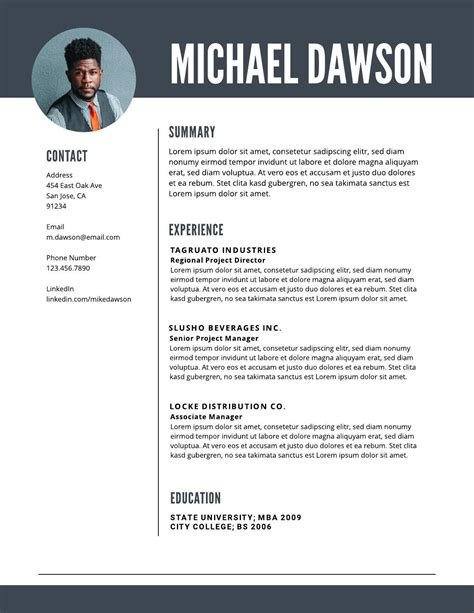Learn the use of ‘I’ and how to develop a personal brand. Effectively showcase your achievements and craft a persuasive summary for maximum impact.In today’s highly competitive job market, standing out from the crowd is essential. Your resume is often the first impression a potential employer has of you, and it’s crucial to make it count. Many people wonder, “Can I use ‘I’ in a resume?” The short answer is yes, but it’s important to use it judiciously and strategically. In this blog post, we will delve into the nuances of using “I” in a resume and how it ties into developing a personal brand. Additionally, we’ll explore how to effectively showcase your achievements in a way that captivates employers and crafting a persuasive summary that leaves a lasting impression. By the end of this post, you’ll have a deeper understanding of how to use “I” in a resume to create a powerful and compelling document that sets you apart from the competition.
Understanding the Use of ‘I’
When it comes to crafting a resume, one of the most debated topics is whether or not to use the pronoun ‘I’. Some argue that using ‘I’ can come across as too informal or self-centered, while others believe that it is important to clearly communicate your personal contributions and achievements. The key to understanding the use of ‘I’ lies in finding a balance between confidently showcasing your skills and experiences, while also maintaining a professional and humble tone.
It is important to use the pronoun ‘I’ strategically throughout your resume. Instead of using it in every sentence, focus on incorporating it in bullet points that highlight your accomplishments and responsibilities. For example, I led a team of 10 employees or I exceeded sales targets by 20%. Using ‘I’ in this way clearly highlights your personal contributions without overwhelming the entire document.
Ultimately, the decision to use ‘I’ in a resume will depend on the specific industry, company culture, and individual preferences. It is crucial to carefully consider the tone and language of your resume, ensuring that it effectively showcases your skills and experiences while also aligning with the expectations of potential employers.
Developing a Personal Brand
Developing a strong personal brand is essential for success in today’s competitive job market. Your personal brand is a reflection of your skills, experiences, and values, and it can set you apart from other candidates. To develop a personal brand, you need to first identify your unique strengths and attributes. This may include your professional expertise, your communication style, and your work ethic. Once you have identified these qualities, you can start to build a brand that emphasizes them. This can be done through your resume, your online presence, and your networking efforts.
Using keywords that highlight your strengths is crucial. When crafting your resume, be sure to use strong action verbs and quantifiable achievements that showcase your skills and experiences. Additionally, your online presence, including your LinkedIn profile and personal website, should reflect your personal brand. This means sharing industry insights, engaging with relevant content, and connecting with professionals in your field.
Networking is another important aspect of developing a personal brand. By attending industry events, participating in professional organizations, and connecting with others in your field, you can further establish yourself as an expert in your field. Building a strong personal brand takes time and effort, but it can pay off in terms of career opportunities and professional recognition.
Effectively Showcasing Achievements
When it comes to showcasing your accomplishments on your resume, it’s important to effectively highlight the impact of your achievements. Instead of simply listing your responsibilities, focus on the results of your work. For example, rather than stating that you were responsible for managing a team, you could emphasize that you successfully led a team that achieved a 20% increase in sales.
Another important aspect of effectively showcasing achievements is to quantify your results whenever possible. This means using numbers and specific figures to demonstrate the impact of your work. Whether it’s the amount of revenue generated, the percentage of cost savings, or the number of new clients acquired, including quantifiable data makes your achievements more compelling and impressive.
Lastly, it’s crucial to tailor your accomplishments to align with the specific job you’re applying for. This means customizing your resume for each application and highlighting the achievements that are most relevant to the position. By doing so, you can demonstrate that you have the specific skills and experiences that make you a strong candidate for the role.
Crafting a Persuasive Summary
When crafting a persuasive summary for your resume, it is important to highlight your key accomplishments and skills in a concise and compelling manner. The summary should provide a brief overview of your professional background and qualifications, capturing the attention of potential employers and encouraging them to read further. By using strong action verbs and showcasing your unique value proposition, you can effectively differentiate yourself from other candidates.
One effective strategy for crafting a persuasive summary is to focus on the specific results and outcomes of your work, rather than simply listing job responsibilities. By quantifying your achievements and demonstrating the impact of your contributions, you can provide concrete evidence of your capabilities and potential value to a prospective employer.
In addition to showcasing your achievements, a persuasive summary should also convey your passion and enthusiasm for your field. By highlighting your motivation and commitment to excellence, you can create a compelling narrative that resonates with hiring managers and leaves a lasting impression. Ultimately, a well-crafted summary can serve as a powerful tool for capturing the attention of potential employers and setting yourself apart in a competitive job market.
